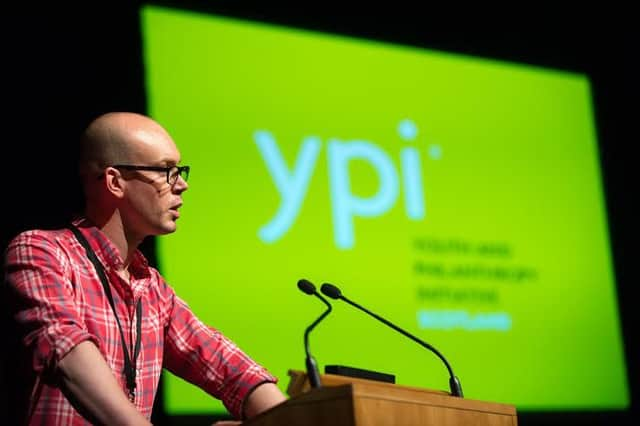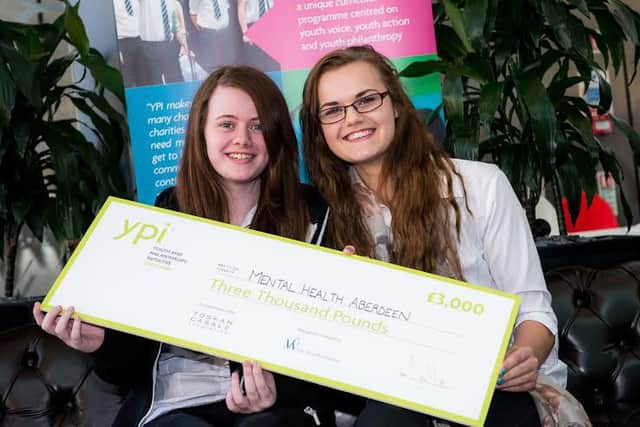Youth & Philanthrophy Scotland: Inspiring philanthropists


With the aim to inspire the next generation of responsible citizens and to give due attention to social services and local charities, the YPI principles, originally developed in Canada by the founder of MAC Cosmetics, Julie Toskan-Casale, was the ideal project for The Wood Foundation.
Each school the YPI works with selects a year group to run the programme in, which is then split up into teams. Each team researches a social services problem within their local area before finding the really small, very local charities that deal with the issue.
Advertisement
Hide AdAdvertisement
Hide AdStudents then contact the charities and witness first hand the important work they do in the community. Various stages of presentations are then undergone before the finalist groups present in front of a panel of external judges before the best presentation wins £3,000 for their chosen charity.


“Having researched a number of projects and models, we happened to stumble upon YPI and were immediately drawn to the core principles of the programme. The idea of a full year group of students, in every participating school, taking responsibility for stewarding a £3000 YPI Grant to a local charity was fantastic” Jonathan Christie, YPI Scotland Manager, explains.
“This model supported: active engagement between students and organisations across the community; the acquisition and development of core employability skills; and the opportunity for students to leave the four walls of the classroom and make a genuine difference within their local area. This was an opportunity that we at The Wood Foundation could not let up.”
The initiative was piloted in the 2008/09 academic year in ten North East secondary school to such success that they never looked back.
In 2015, the YPI have got 31 out of 32 local authorities and 195 secondary schools in Scotland engaged with their initiative. Throughout the year, around 23,400 students will be getting involved with £585,000 being donated to small, grassroots charities.
By the end of the 2015/16 academic year, a total of £1,962,000 will have been donated to charities since the beginning of YPI in Scotland since 2008.
The programme is run with current funding partners SSE, Speratus, Artemis, The Orcome Trust and the STV Children’s Appeal.
Students dealing with real money, real issues, real problems and real people, makes the programme so important. As future decision makers and opinion formers, YPI provides invaluable and unique experiences for students. “It provides a clear and structured framework for students to consider and identify the big social issues that affect their community, and establish meaningful connections with their chosen charities” says Jonathan.
Advertisement
Hide AdAdvertisement
Hide Ad“All these small local organisations exist as a direct result of local need and often fill gaps in statutory provision. Importantly, these small charities are unlikely to have a shop on the High Street or a website, therefore, students need to actively research their local community and root out those small organisations where £3000 will make maximum local impact.”
The work of YPI doesn’t end when the grant is awarded to the winning teaming. Jonathan and his colleagues are increasingly hearing from schools and charities alike that YPI Scotland is a starting point for significant and sustained charitable engagement like fundraising, awareness raising or volunteering.
“We also hear from a great many schools about the impact YPI Scotland is having with respects wider school culture and ethos. The impact on participating students is stark, and whilst the programme has grown and developed across Scotland it has also become a significant grant making framework with that focus on small, local grassroots charities”